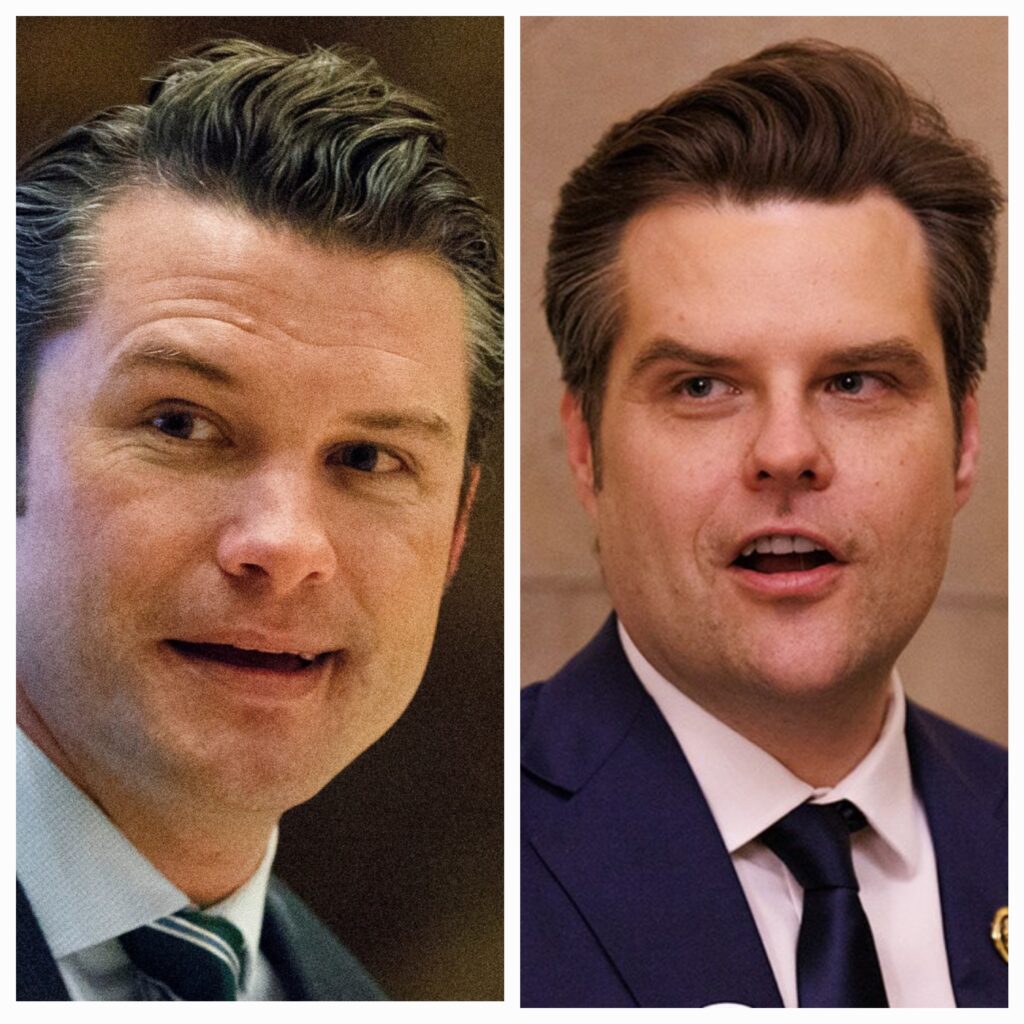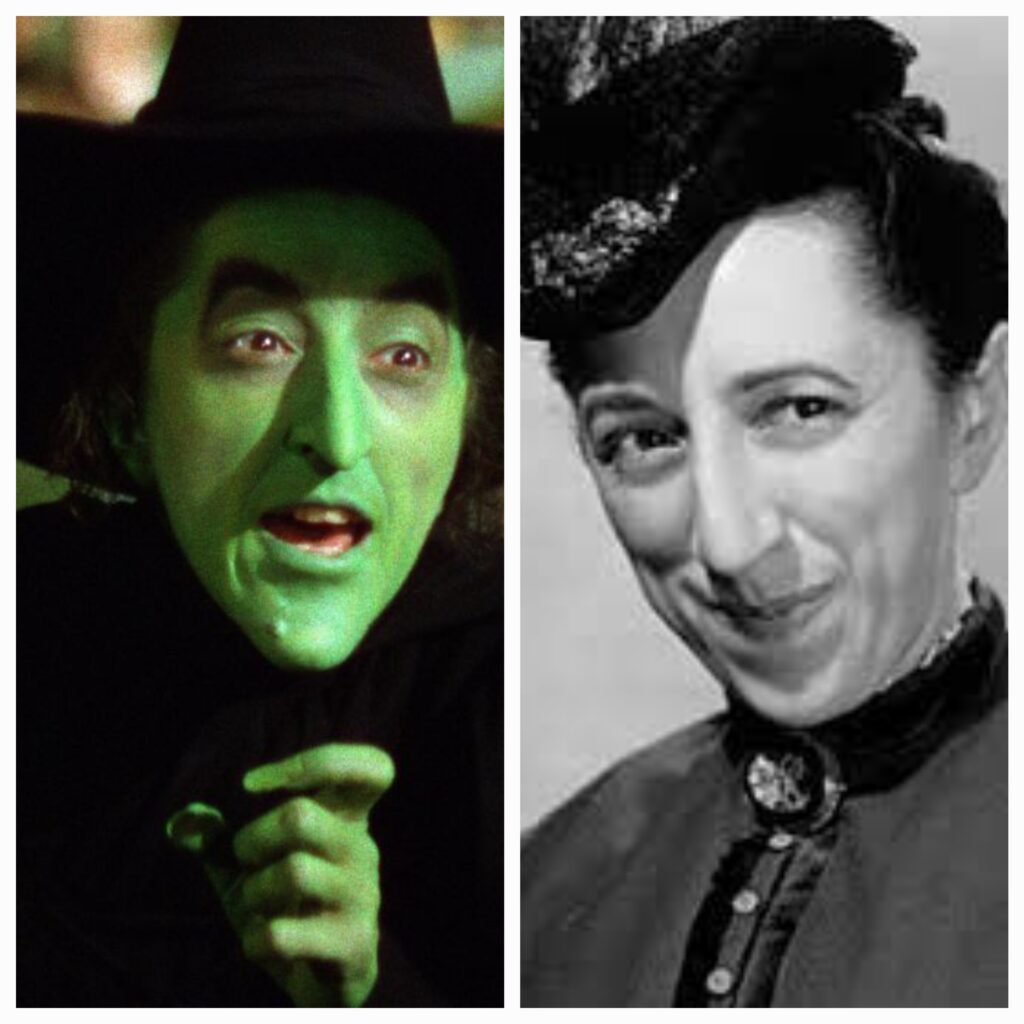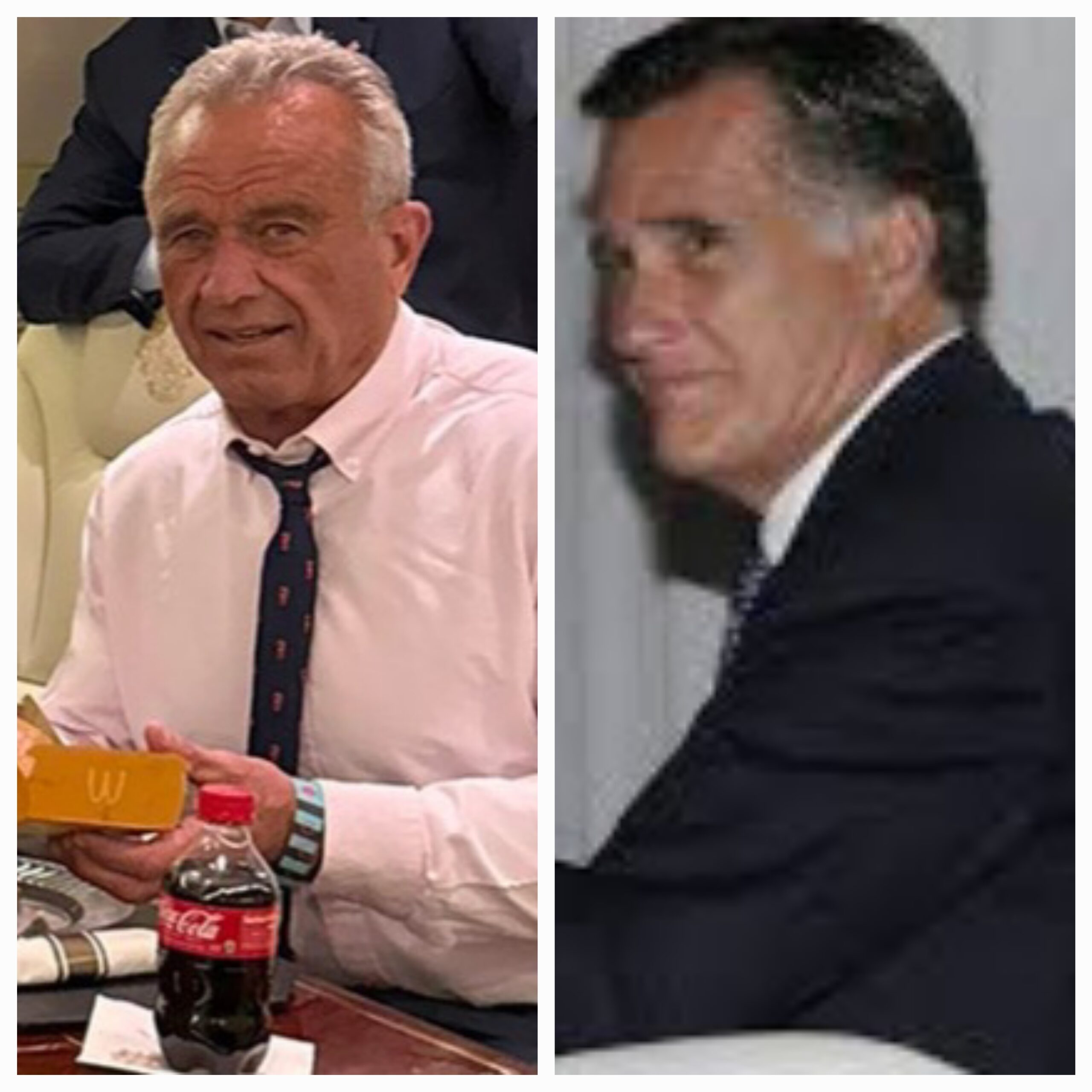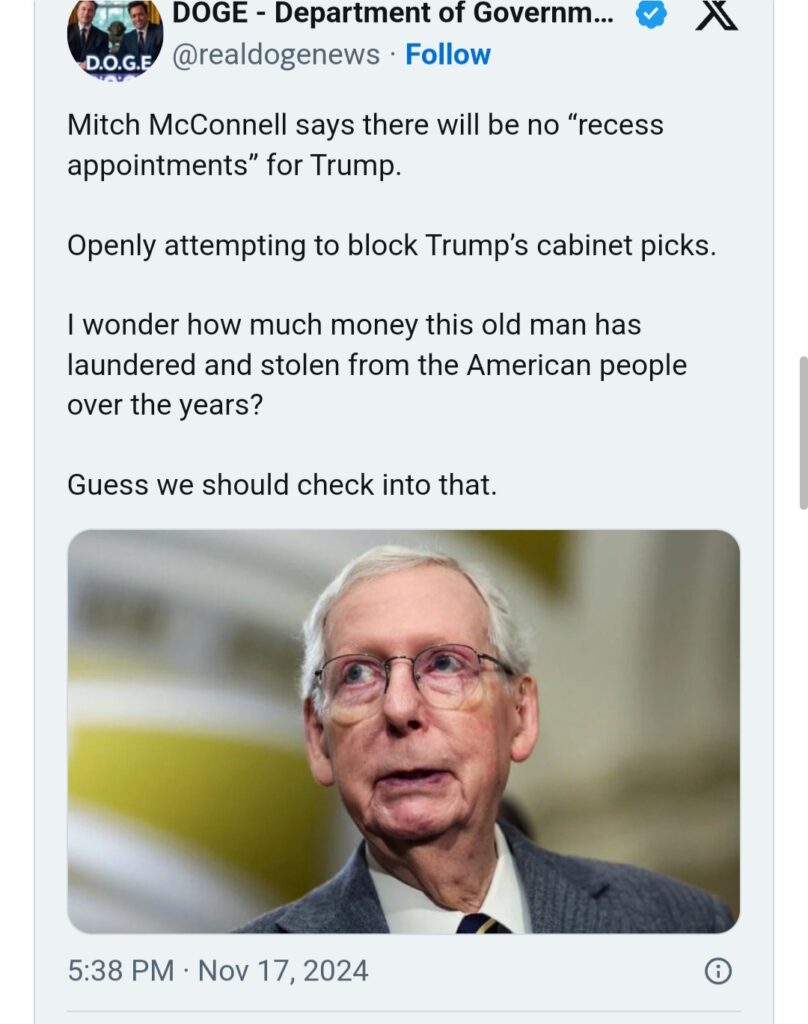Gaetz And Greene Get Gaffed
Before we let Matt Gaetz ride off into the sunset, it is fair to mention that Gaetz, along with his bomb-throwing partner in slime, Marjorie Taylor Greene, are now being tapped for a cool $547,800 to compensate six separate public entities’ lawyers for defending them in a frivolous lawsuit brought by the pair in federal court here in California.
The story, largely going unnoticed in most other areas of the nation, is here at the Law and Crime website.
Back during the pandemic, Gaetz and Green were hosting MAGAniferous events in cities from coast to coast.

Rep. Matt Gaetz, R-Fla., left, and Rep. Marjorie Taylor Greene, R-Ga., raise their arms after addressing attendees of a rally, Friday, May 7, 2021, in The Villages, Fla. (AP Photo/Phelan M. Ebenhack)
They had lots to talk about, what with the ongoing Big Lie brouhaha that brought in MAGAheads with empty minds and open wallets for an evening of grift and treachery.
Even here. But California isn’t a blue monolith. It is a red/blue mixture with blue counties squeezed in along the more populous coastline and red counties everywhere else.
Especially in Orange and Riverside Counties.
The duo contracted with Anaheim, known for Disneyland and The John Birch Society, and the City of Riverside to hold their events.
“Not so fast,” the NAACP, LULAC, the League of Women Voters, Unidos Por La Causa, the Riverside Democratic Party, and Women’s March Action seemed to say. “This isn’t a fact-free zone like you have back home.” And they protested the meetings. They did it so well that both Anaheim and Riverside decided to opt out.
Gaetz and Greene cried foul and sued the cities, a business, and the 6 above-named groups under a 153-year-old law (42 U.S.C. § 1985), the so-called Ku Klux Klan Act, meant to keep the KKK from conspiring to interfere with civil rights. That was just too clever by half. And wouldn’t you know it, their lawyer, you may have heard of, was John Eastman. Eastman is currently in the process of losing his license to practice law in The Golden State.
The Biden-appointed judge (i.e., one of the good ones), Judge Hernan Vera, thought they were justified in suing the cities and the business, but including the 6 protesting nonprofits was a step too far: their conspiracy theory relied purely on conjecture, a known “hard fact” among the MAGA-prone, but a non-starter with everyone else.
So Vera dismissed the protest groups from the suit and allowed that it would be good if the two sides just took care of their own costs and attorney’s fees.
But that didn’t work for the protest groups. They went back to the judge with the argument that they shouldn’t be punished simply because they were exercising their 1st Amendment rights. The judge agreed and this week put Gaetz and Greene on the hook for all six of the groups’ lawyers’ fees.
So that’s $273,900 each to Marge and Matt. My guess is that they’re going to fight it because that’s what MAGAs do. My free advice to both is to fundraise on the issue. After all, according to the election totals we’ve seen so far, PT Barnum horribly underestimated the basic rate at which suckers are born.

 8
8
